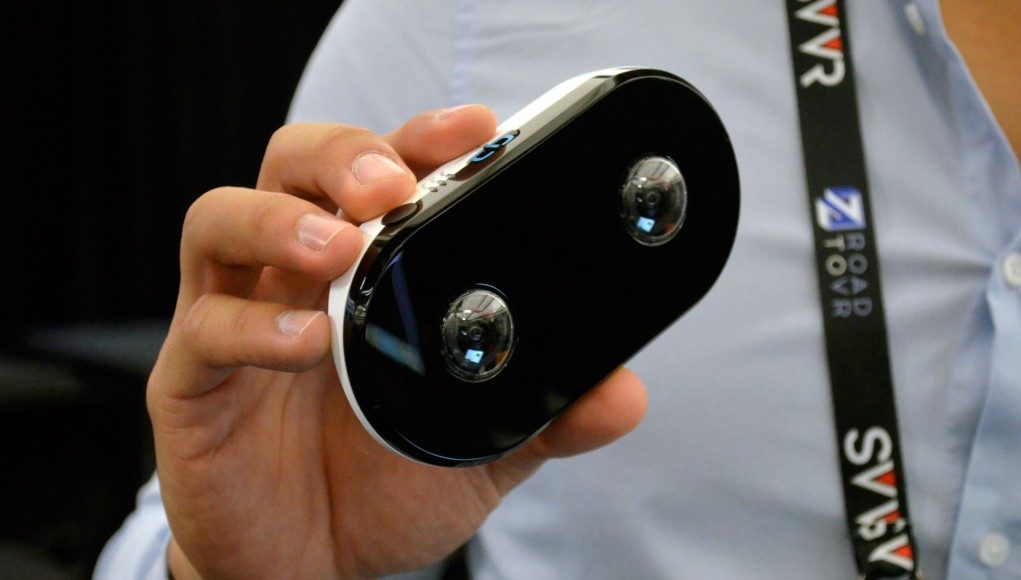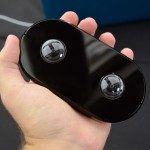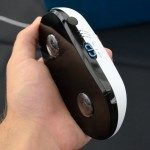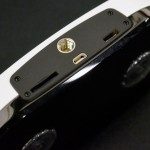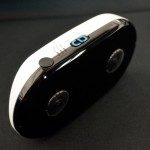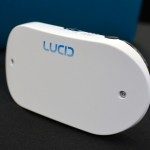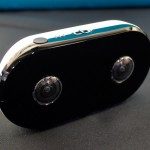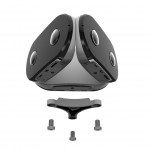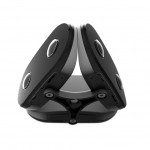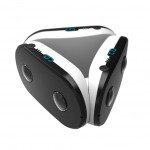In a world all too full of crowdfunding campaigns built on an idea and some rendered mockups, I was impressed to see LucidCam CEO Han Jin pull a polished and functional VR camera out of his pocket—even more so when I saw the quality of the imagery it could capture.
LucidCam is a consumer VR camera that’s genuinely portable and makes it a snap to capture the feeling of being somewhere. The company recently launched and Indiegogo campaign that’s sitting at a healthy 70% at 45 days remaining, with the camera itself starting at $299.
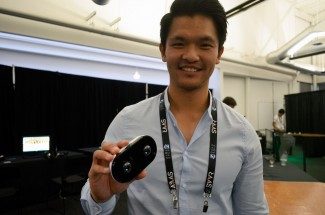 CEO Han Jin recently showed me the latest LucidCam prototype and some of the imagery captured with it.
CEO Han Jin recently showed me the latest LucidCam prototype and some of the imagery captured with it.
The quality of the prototype itself impressed me. The design is simple and the unit felt incredibly solid and well built. It fits nicely into a single hand and slides just as easily into a pocket. It remains to be seen if they can pull this quality off of a production line, but what the company has achieved so far bodes well for their ability to tackle that challenge when it comes.
With two lenses on the front of the device, LucidCam shoots 180 degree stereoscopic photos and videos. As with other 180 degree solutions, the output looks quite sharp compared to 360 degree devices—as the pixels are more densely concentrated in front, rather than stretching all the way around you—and there’s no need to stitch multiple camera views together, eliminating potentially unsightly seams. The stereoscopic effect becomes increasingly pronounced as resolution improves (thanks to more sharply defined edges), and thus the 3D effect seems very good compared to many 360 3D captures.
Technically speaking, LucidCam’s optics have an FOV of 190° x 120° with a fixed F/2.2 aperture. Video is shot at 1080p and photos at 2K, for each eye. Video is currently only captured at 30 FPS, which is not ideal for VR, but it is workable (this seems like a pretty straightfoward point of improvement for future versions of the device). The battery can purportedly handle up to 1 hour of continuous recording. The company is also looking at stretch goals for a waterproof case and live streaming via HDMI out.
The LucidApp (iOS/Android), which currently allows 2D and VR playback of media captured with LucidCam, is still quite rough around the edges. Even though video captured with the camera looks pretty sharp, it appears to me that there’s quality improvements to be made on the playback side, which means there may be headroom for even higher quality as the app matures.
If there’s such a thing as ‘point and shoot’ for VR imagery, this is the closest I’ve seen yet. There’s something appealing about the simplicity of holding the device in the air, clicking a button, and instantly capturing some sense of what it feels like to be right there, in that very spot and at that very moment.
When I think about how and why I share photos and videos with friends and family, it’s always about trying to convey a sense of what it’s like to be where I am or to do what I’m doing. The closer I can get to sharing the experience itself, the better; LucidCam feels like the next step for this sort of experiential sharing.
360 capture is probably ideal in the long term, but right now we have to deal with the fact that it comes with a substantial quality tradeoff, not to mention an increase in size, cost, and complexity. LucidCam’s decision to optimize for 180 degree capture feels like a smart choice for this moment in the course of VR development.
That’s not to say that the company is ignoring 360 degree capture—quite the opposite. Jin showed me a prototype adapter that easily aligns three of the company’s cameras for 360 degree 3D capture.
The need for additional cameras will of course increase the cost and make capture more difficult, but the modular design is a smart way to offer the option for those who are willing to deal with the tradeoffs of 360 capture.
Disclosure: LucidCam was a Pitching Startup at the VR Launchpad event in October which was co-organized by Road to VR.

